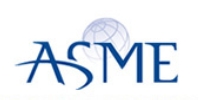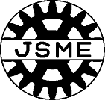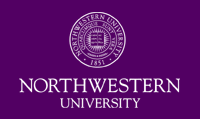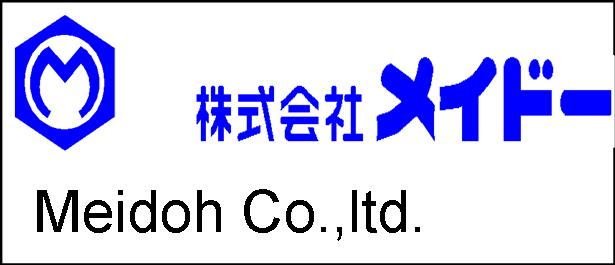Conference Program
Conference Program by date and time slot is now available! Click HERE to view program.
Draft of the FINAL PROGRAM by paper/poster is now available Click HERE to view the program draft.
|
Tuesday Oct. 7, 2008 |
Wednesday Oct. 8, 2008 |
Thursday Oct. 9, 2008 |
Friday Oct. 10, 2008 |
Saturday Oct. 11, 2008 |
| 7:30am | Registration and Breakfast | Registration and Breakfast | Breakfast | Breakfast | |
| 8:30am | Welcome and opening remarks | 7 Technical Sessions +Career Planning Panel for Students | 7 Technical Sessions | NSF Summer Institute Short Course Students, Post-docs: $30 |
|
| 9:00am | Plenary 1 - Dr. Maughan |
||||
| 10:00am | Coffee Break | Coffee Break | |||
| 10:30am | Coffee Break | 8 Technical Sessions + ASME mfg group meeting | 8 Concurrent Technical Sessions | ||
| 10:50am | 6 Technical Sessions + NAMRI Board Meeting | ||||
| 12:00pm | Lunch | Lunch + Invited Talk -Dr. Danno |
Merchant Medal Recipient Award Lunch | ||
| 1:30pm | 5 Technical Sessions +Posters+Student Mfg Design Competition + JMSE Associate Editors Meeting | 6 Technical Sessions + One Panel | 8 Technical Sessions | ||
| 3:00pm | Coffee Break | Coffee Break | Coffee Break | ||
| 3:30pm | 5 Technical Sessions +Posters +Student Mfg Design Competition | 8 Technical Sessions + MED EC Meeting | 7 Technical Sessions | ||
| 5:00pm | Registration and Reception | Transportation to Dinner Cruise | |||
| 5:30pm | ASME Membership Meeting + JSME Membership Meeting |
||||
| 6:00pm | Spirit of Chicago Dinner Cruise +Awards Ceremony | ||||
| 6:30pm | Light Reception | ||||
| 7:00pm | |||||
| 7:30pm | |||||
| 8:00pm | |||||
| 9:00pm |
Student Manufacturing Design Competition, due May 30, 2008. First prize: $1000, second prize: $750. and third prize $500. http://divisions.asme.org/med/studentprograms/index.html
POST-CONFERENCE Short Courses on Fundamentals and New Opportunities of Materials
October 11, 2008
8am to noon
Northwestern University
Strengthening of Steels – M. E. Fine
Iron is made strong primarily by dispersions of nano-sized particles. In quenched and tempered steels, these particles are primarily carbides. There is also strengthening by the crystal defects from the phase transformation (austenite to martensite) that
occurs on quenching. Low carbon is desirable for improved toughness and to obtain ductile welds. Recent research on strengthening low carbon steels by nanoscale precipitates will be presented.
Ceramics for Structural Applications – K. T. Faber
Ceramic materials, though intrinsically brittle, afford the highest stiffness and greatest temperature resistance of any material class. Forming and shaping methods of ceramics will be reviewed, including some recent advances in high solids loading, near-net shape techniques. The statistical nature of strength of ceramics will be discussed in light of ensuring reliability in brittle materials. Strategies for flaw-tolerant ceramics will be presented. Examples will also be provided of the design of ceramics as integral parts of power generation systems.
Manufacturing of Metallic Foams – D. N. Dunand
This talk will review various methods to fabricate metallic foams for applications as diverse as structural sandwiches, filters, heat-exchangers, catalyst substrates and medical implants. Examples of titanium, nickel and steel foams will then be presented, focusing on manufacturing and its effect on mechanical properties.
Shape Memory Alloys – L. C. Brinson
This talk will review the fundamental properties and applications of shape memory alloys. Emphasis will be on the underlying crystallographic phase transformation and the relationship to the materials unique macroscopic properties. The origins of the shape memory effect and pseudoelasticity will be presented along with best practices in ways to capture the constitutive behavior in mathematical models. Examples of applications of SMAs and the applications of the models will be presented
_________________________Morris E. Fine is Member of the Graduate School and Technological Institute Professor at Northwestern University's McCormick School of Engineering and Applied Science. It was through his leadership that the first Materials Science Department in the United States was started ca. 1958 in Northwestern's Engineering School (then called the Technological Institute). Morrie's principal field of research is phase transformation in materials with emphasis on forming nanoscale precipitates in metals and ceramics, recently in steels. He has won many awards including membership in the National Academy of Engineering and the American Academy of Arts and Sciences.
Katherine Faber, Walter P. Murphy Professor of Materials Science and Engineering, has published more than 120 papers and edited one book in the area of fracture, toughening mechanisms and thermal shock in ceramics, glasses, cement-based materials, coatings, and ceramic-matrix composites. Among Professor Faber's awards are the NSF Presidential Young Investigator Award, Fellow of the American Ceramic Society and of ASM International, the Charles E. MacQuigg Award for Outstanding Teaching at Ohio State, the Society of Women Engineers Distinguished Educator Award, and the YWCA Achievement Award for Education. She is an ISI Highly Cited Author in Materials, and recently completed a term as President of the American Ceramic Society.
David C. Dunand is the James and Margie Krebs Professor in the Department of
Materials Science and Engineering at Northwestern University. He received his doctorate from MIT in 1991, where he was a faculty member before joining NU in 1997. He has published over 160 journal articles on physical, mechanical and process metallurgy, about 40 of which are on metallic foams. He was recently named Fellow of ASM International and received Teacher of the Year award in 1998 from the MSE department.
L. Cate Brinson is currently the Jerome B. Cohen Professor of Engineering at Northwestern University and Chair of the Mechanical Engineering Department with a secondary appointment in the Materials Science and Engineering Department. She received her Ph.D. in 1990 from Caltech, was a postdoc in Germany at the DLR, then joined the Northwestern faculty in 1992. She has authored one book and over 70 journal publications on topics surrounding the modeling and characterization of advanced material systems, including polymers, nanocomposites and intelligent materials. Among Dr. Brinson’s significant awards are the 2006 Friedrich Wilhelm Bessel Prize of the Alexander von Humboldt Foundation, the 2003 ASME Special Achievement Award for Young Investigators, the NSF CAREER Award. She is also currently serving on the National Materials Advisory Board of the National Academies.












